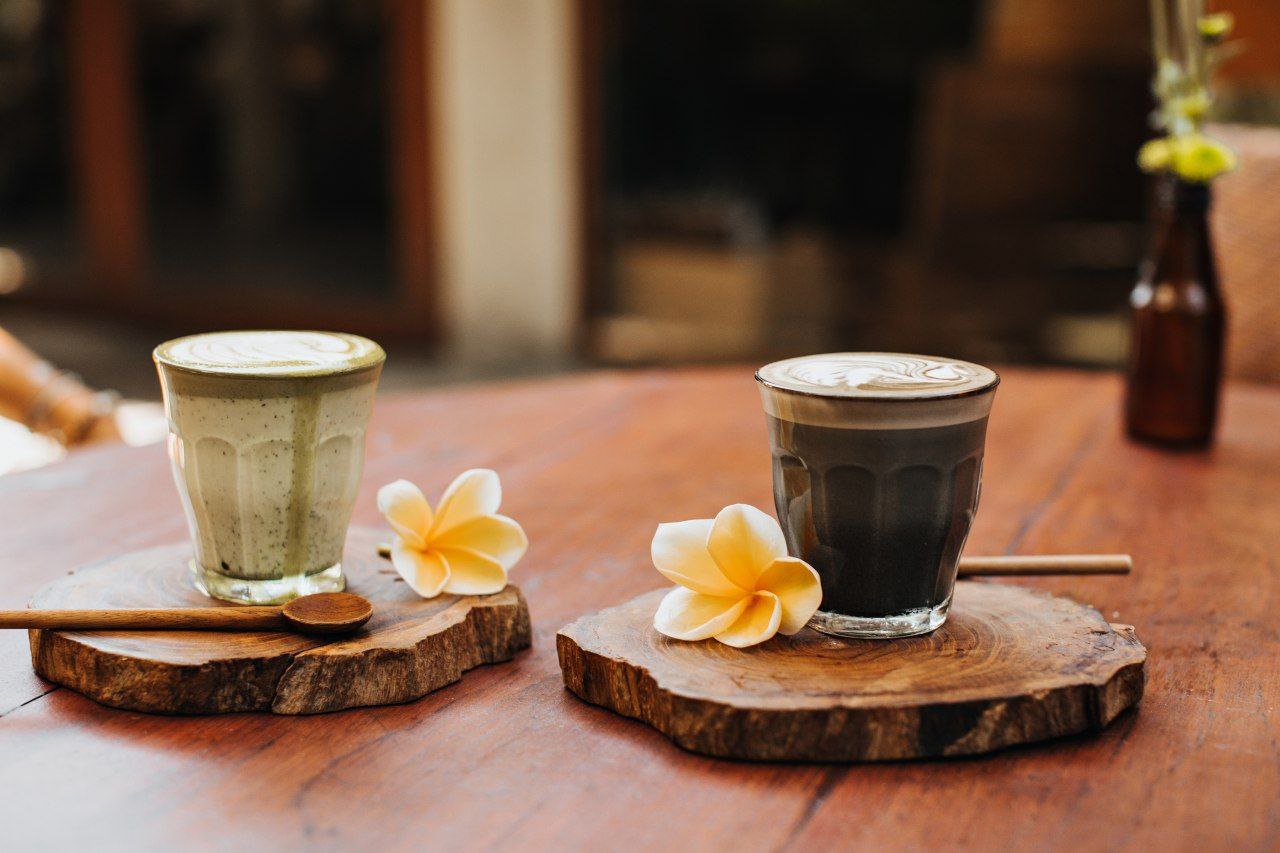Matcha and green tea share a common Camellia Sinensis plant, but their differences go way beyond looks and brewing. If you have ever been left wondering, “does matcha have caffeine?” or “how much caffeine is in matcha”, do not worry, because you are not alone. Although these teas share a wide array of health benefits, their amount of caffeine is quite different. In this article, we’ll explore the differences between matcha and green tea, looking at everything from how they are grown and taste to their nutritional contents, and a close examination of “how much caffeine does matcha have” in comparison with regular green tea. If you are looking for a boost of energy or a soothing pot of tea, understanding these differences will equip you with the knowledge to choose the optimum choice for what you need.
Does Matcha Have Caffeine?
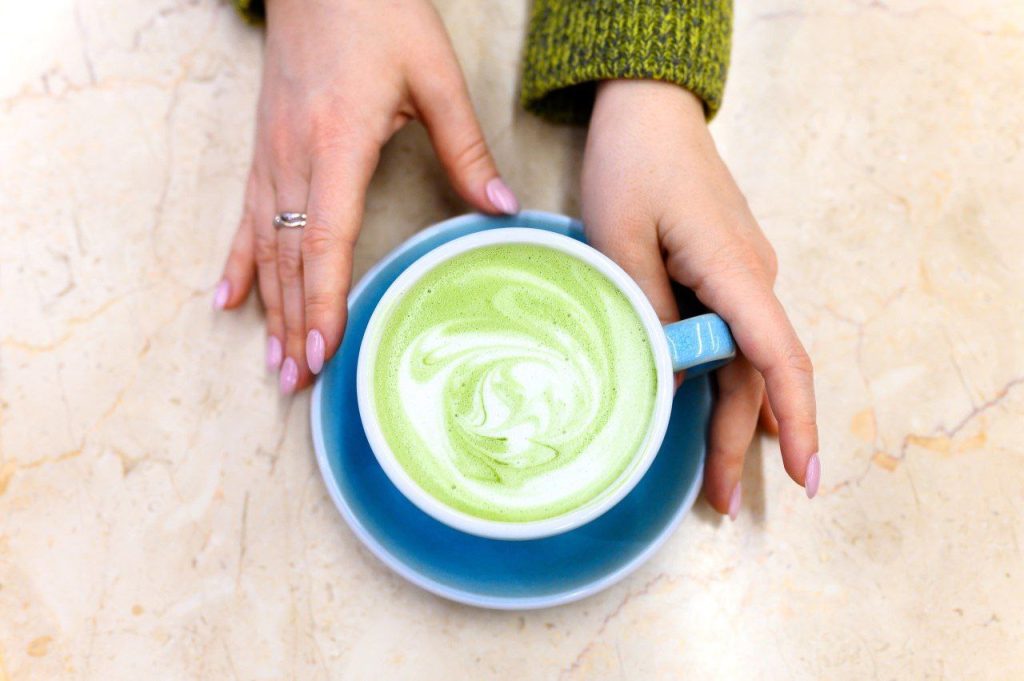
Yes, it is. Most matcha is higher in caffeine than other green teas. The level is variable based on type and how the tea is produced, but is primarily greater than in other green teas. One serving of matcha (typically 2-4 grams of powder) contains approximately 38 to 176 milligrams of caffeine, a considerable amount in comparison with a regular cup of green tea, with only around 20 to 90 milligrams.
If you are considering how much coffee there is in coffee and how much there is in matcha, the answer is not simple. An everyday serving of coffee could contain more coffee than a typical serving, depending on how much coffee is what you prefer.
But, like with every other beverage with caffeine, keep in mind that excessive amounts of caffeine cause shakiness and anxiety. Be aware how much you are drinking in a day.
How Much Caffeine Is in Matcha Compared to Coffee?
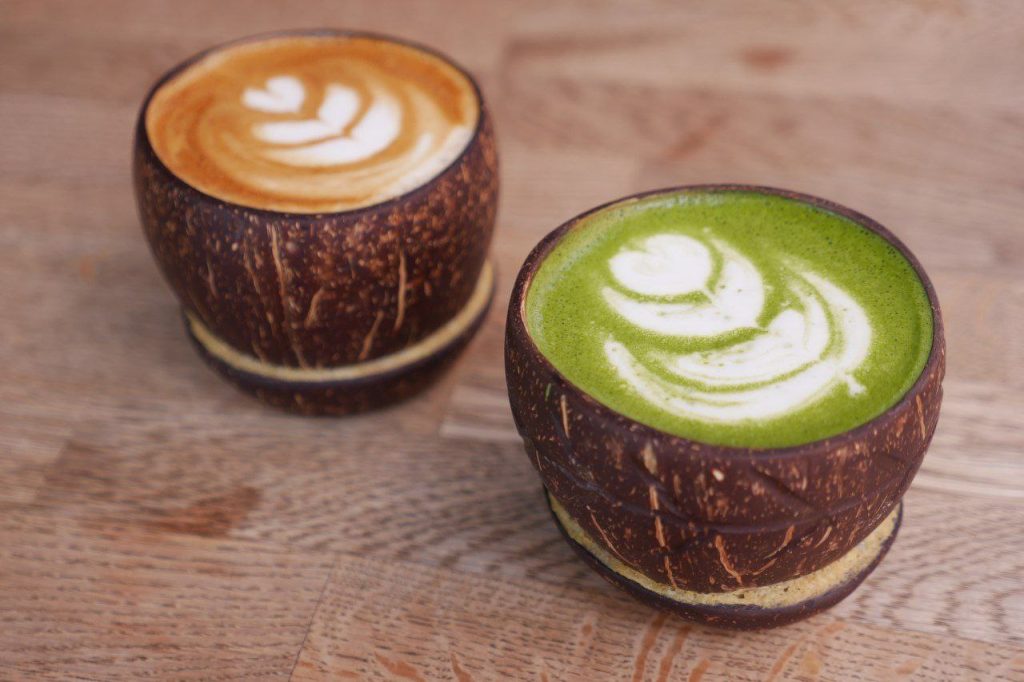
If you are wondering how much caffeine is in matcha and in coffee, here is the information. Both contain caffeine, but much less in matcha. An average serving of matcha is 60-70 mg in 8 oz, and a regular serving of coffee is approximately 95-200 mg. Coffee, then, has a little more in a regular serving. But keep in mind, it is not necessarily how much there is—it is also how your body is going to process it.
So, does matcha tea have caffeine? Yes, but in a special way. Matcha contains a special amino acid called L-theanine, and what L-theanine does is slow down how the body takes in the caffeine. What happens is a steady level of boost without the shakes and crash coffee creates. Coffee, on the other hand, pumps the caffeine directly into the bloodstream, producing a rush—but also the inevitable jitters and crash within a few hours.
If you enjoy the morning boost but would prefer not to suffer the negative consequences of coffee, a superior option is matcha. It is sufficient in the amount of caffeine needed to get a person going but keeps them level and composed the entire day. It is packed with antioxidants, and with matcha, not only are you getting a boost in energy but a lot in addition.
Briefly, coffee will contain a little less caffeine per serving, but matcha releases energy gradually. That is, it is a steady and consistent source of energy. It’s a better option if you prefer something that won’t get you jittery.
Bought some matcha powder but not sure how to brew it at home? Here’s a complete guide on the perfect matcha temperature and brewing tips to get it just right: The Truth About Matcha Temperature: Does Matcha Need to Be Heated?
Is Matcha’s Caffeine Better for Focus?
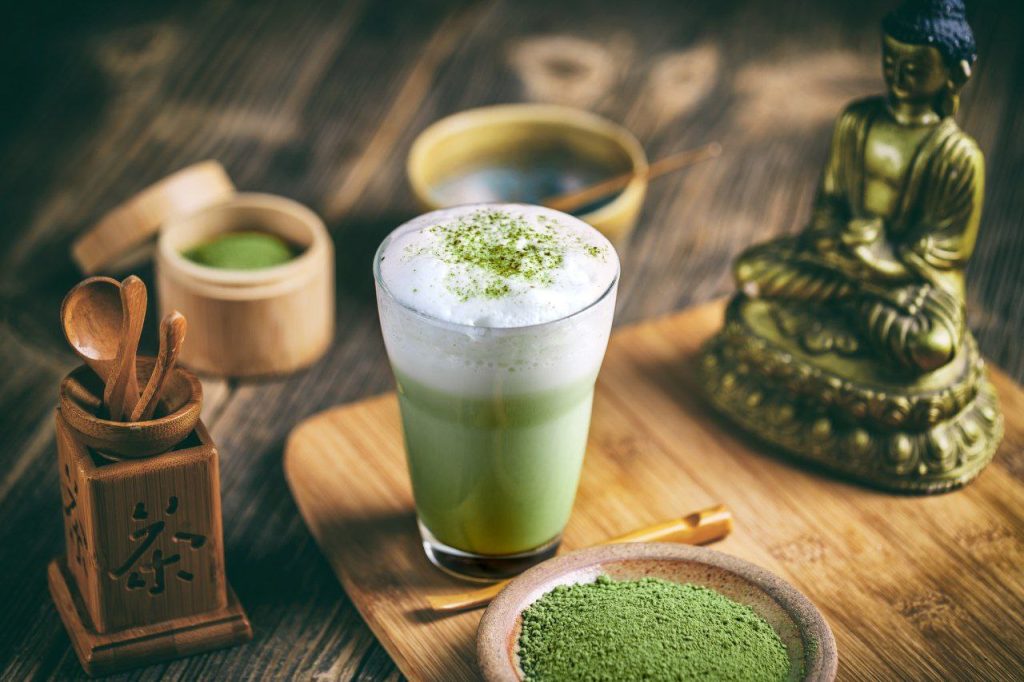
If you are inquiring, “Does matcha have more caffeine?” and “In how much is a serving?” and “Can I think better and get more productive?” and are looking for a shocking answer, here is what I have. Matcha is a green tea, but not quite. It is a little different. It is packed with nutrients and antioxidants because a whole tea leaf is utilized and not only the leaves utilized in regular tea.
Now, let’s discuss coffee. Standard tea is not as high in caffeine as matcha, but won’t get you jittery. The L-theanine is balanced with the caffeine in matcha, and L-theanine is an amino acid that makes you feel tranquil and yet alert. It is excellent in helping with attention and concentration without giving a shaky sensation such as coffee.
Studies have proven that matcha makes the brain function better, such as concentration, memory, and reaction. If you are thinking, “Is there a type of tea in matcha that makes you productive and your concentration improved?” The answer is affirmative. It produces a consistent boost and keeps a person productive without getting them tired afterward.
Matcha helps get your chores done and is packed with antioxidants. Antioxidants are healthy for your health, liver, and heart. If you are looking to slim down, matcha is useful because it speeds up metabolism.
If you are concerned about side effects, keep in mind that there is a little more caffeine in matcha. Just drink a little. Consuming a lot is going to get you really wide-eyed and keep you up at nighttime. Reap the rewards but not in excess.
In short, there are numerous advantages in matcha. It keeps your brain and health in top shape. Caffeine in matcha makes you productive and keep going without getting a crash.
For high-quality matcha sourced directly from Uji Kyoto farms, I recommend this trusted website. With a global customer base and a high volume of orders, they ensure the best matcha straight from Uji Kyoto: GoldenHerbs.com
Does Matcha Have More Caffeine Than Green Tea?
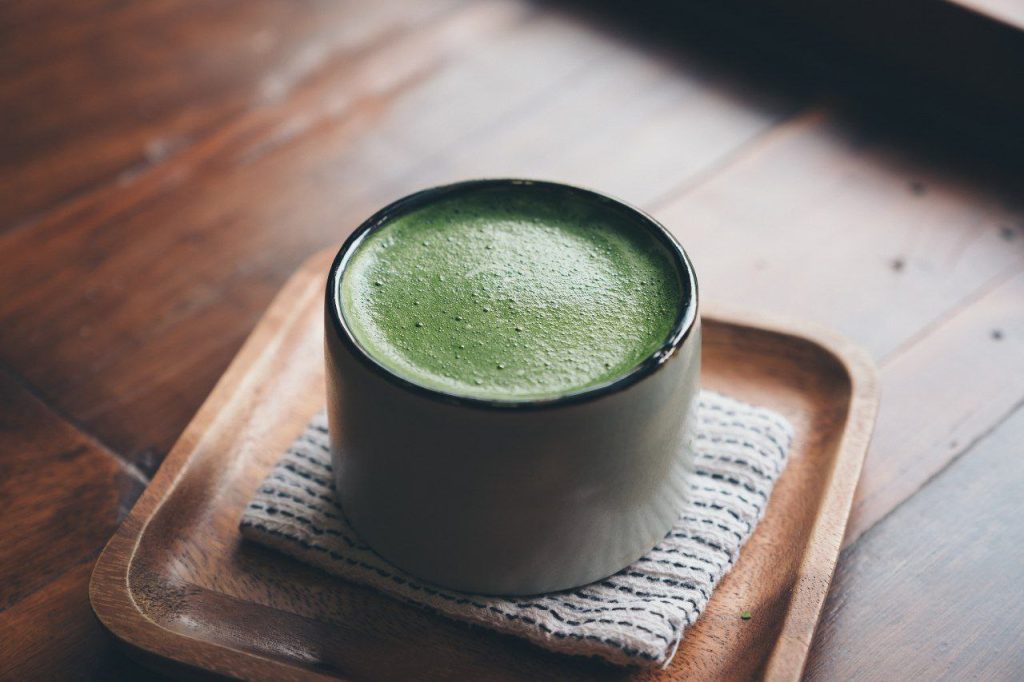
If you are wondering how much caffeine is in matcha and in regular green tea, here is the answer. Green tea and matcha are both made from the Camellia Sinensis plant but are produced in a different way, and because of that, their taste, consistency, and amount of caffeine are quite distinct.
First, is tea prepared using matcha caffeinated tea? Yes. It contains slightly more caffeine than normal green tea. When you grind the entire leaf and consume the tea prepared using matcha, you are getting all the nutrients, including caffeine. Green tea is prepared differently. Green tea is immersed in water and only provides its constituents to the water.
Now, how much is in a serving of regular matcha? About 280 milligrams in an 8 oz. Wow, a lot! Green tea is around 35 milligrams in a serving, and how long you brew depends. So, yeah, a little more in matcha.
The main differences in how these teas are produced are in taste and process. The tea is shade-grown in order to boost its amount of chlorophyll, giving it a vibrant green and a richer, dirtier taste. Green tea is sunlight-grown and is a paler hue with a bitter taste. Both teas are drinkable cold or hot, but preparing matcha is a great process—it is whipped or agitated in water, while green tea is simply saturated.
If you need lots of energy and a boost in caffeine, matcha is a suitable option. If you are looking for something mild, green tea is a better fit.
Ending
Okay, so what is the answer? Yes, there is caffeine in matcha. It is even more in regular green tea. How much is in matcha? It is dependent on how much you are using, but approximately the amount in coffee. It doesn’t, however, get you horrible jitters and a crash. It is because of L-theanine; a smoother and longer boost is provided by matcha and keeps you awake without getting stressed.
So, does matcha tea have caffeine that’s worth the hype? Absolutely! Whether you’re looking for a morning pick-me-up or a steady energy source to power through your day, matcha has you covered. Just remember—like anything with caffeine, moderation is key!

